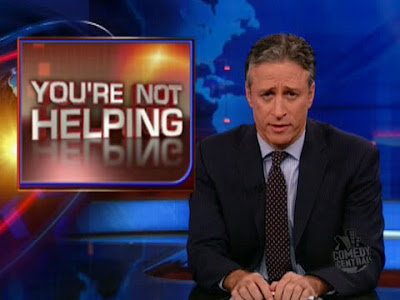The coverage on Egypt has often been frustratingly simplistic. Many of us don’t know much about Egypt other than the usual familiarity with it’s famous characters of antiquity and their monuments. All the talk of a power vacuum is often followed by talk of the possible rise of the Muslim Brotherhood. Of course, Fox has been screeching, deeply involved in their own nightmares, providing comic relief and giving conservatives another reason to lock their doors and hide their women.
In spite of wall to wall coverage, most news only really scratches the surface of Egyptian politics. Last evening, on CNN’s Parker/Spitzer, Eliot interviewed MOHAMED MORSY, spokesman for the Muslim Brotherhood. (link to transcript of the program) He gave answers that you would expect from a media savvy spokesman, but when Eliot asked about the peace with Israel, Morsy made a few statements that some could find ominous. Here’s a snippet from Eliot’s next guest
Fouad Ajami, Johns Hopkins University:
“… You have the autocrats on one side, the theocrats on the other, and you have this — the people of Egypt in between.
And in fact this is the game that Mubarak plays, and plays it to perfection.”
Mubarak has always used the Brotherhood as boogey men, with himself the hero, protecting the rest of Egypt from theocracy. This simplistic view of good vs evil makes good slogans for Mubarak and has worked quite well for him. What about the Brotherhood and Al Queda?
“SPITZER: He says the right words. He says of course we believe in the rules of pluralism. Freedom of religion, freedom of speech. Does he, in fact, believe in that?
AJAMI: No, he doesn’t. I mean there is one thing I think he said which was truthful. Are they — what about the line, the dividing line between the Muslim Brotherhood and al Qaeda?
In fact, al Qaeda really wages war against the Muslim Brotherhood. They believe that these are domesticated Islamists and Ayman al-Zawahiri, who’s Egyptian, really he comes in the highest reaches of Cairo society, has nothing but contempt for the Muslim Brotherhood. He thinks that they have basically accommodated themselves to the world and Cairo and they have cut a deal with the ruler that they sat in the parliament.
So the truth of the matter is that The Muslim Brotherhood is actually quite moderate when compared to the extremist Al Queda. The hatred between these two groups runs deep and long according to the next guest, Fareed Zakaria. Will Egypt look to Iran as a shining example of governing?
ZAKARIA: Well, the first thing to understand is that the fears of a kind of Iranian theocracy are vastly overdone. I mean, Iran is a Shia country with a Persian history. The Shia clergy always played a very powerful political role in Iran. SPITZER: Right.
ZAKARIA: Egypt as a Sunni country doesn’t have that same clergy, doesn’t have that same history, and also Iran has been a negative model for a large part of the world so Egyptians look at Iran not with admiration, but with a sense of, OK, we don’t like Mubarak, we don’t like Iran. What’s left?
Egypt has some of the seeds of democracy. Look, it’s going to be tough. It’s a poor country. There’s a lot of very religious feeling in there but they do have elements that would — that will make it succeed.
So who would fill the void? Zakaria says that egypt is a military dictatorship and power flows from the military. Mubarak himself was a general and most of his immediate appointments are also military. That same military has been coming to America to our military schools, by the hundreds, maybe by the thousands over the last 30 years. We have a lot of personal ties and thus channels of communication with Egypt’s military.
Regarding Morsy’s comments on the peace with Isreal, when you realize that it’s the Egyptian military who honor and keep that peace, the situation is less dire because the military isn’t going anywhere.
So the most recent suggestion floated by the US has been a coalition consisting of the military, opposition representation (like El Baradei) and the current vice president, Sulieman until elections can be planned and executed, with inclusion of all Egypt’s varied factions.
So there is a way forward. Even if the Muslim Brotherhood dominates parliament in the beginning of a new Egypt, chances are that eventually, as people find their voices, that situation may change. Throughout the middle east in any given dictatorship or autocracy they mostly shut down all opposition voices, except those coming from within Islamic groups. They can not easily move against Islam.
Eventually, given an open democratic system, people may find that opinion need not be couched in religious terms any more. There is hope for a secular, democratic Egypt.
If you have the time, read the entire transcript of Spitzer’s show; I found it fascinating and informative. This gave me reason to dare to be more optimistic of Egypt’s chances to come through this with a fledgling democracy.
This is my first diary here at the Motley Moose, and I’m thinking that the Moose just may be my new blogging home.


 Well, maybe not quite the same. Rain and sleet will keep me indoors. Snow, on the other hand, is not a problem for someone born and bred in the north country. It’s not a problem for my buddy Al, either.
Well, maybe not quite the same. Rain and sleet will keep me indoors. Snow, on the other hand, is not a problem for someone born and bred in the north country. It’s not a problem for my buddy Al, either.
